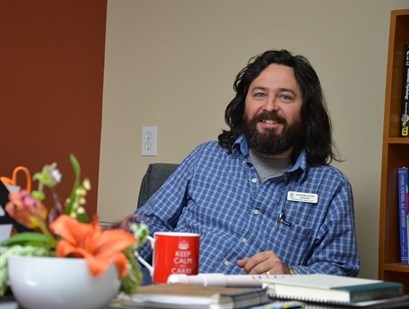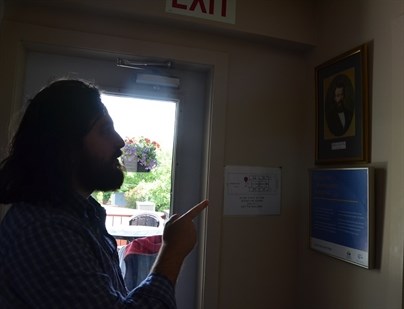
(JULIE WHITTET / iNFOnews.ca)
May 29, 2013 - 10:10 AM
"MORE MONEY IS NOT NECESSARILY WHAT WE NEED."
In a city where wineries and distilleries are the lifeblood of its culture and tourism, the closure of its detox centre and an uncertain future for addiction treatment services in Kelowna stands out like a red wine stain.
When Kelowna's main addiction services centre announced its closure last January it raised many questions. Unable to strike a deal with Interior Health for more funding, Crossroads Treatment Centre decided it had no choice but to shut its doors. Interior Health is currently sifting through proposals for a new treatment centre operator and expects to announce the successor in June.
But the biggest question remains: If Crossroads couldn't make it go with current funding—what level of service can we expect after June?
Until then, other providers are adjusting their operations to pick up the pieces. Jamie Dale Walraven runs Kelowna's Ozanam recovery house and says he's not sure what to expect either. A number of clients from Crossroads come to Ozanam seeking in-house support after finishing their treatment.
But Walraven has a different perspective on the question. Supporting Kelowna's addicts through recovery won't be answered solely in dollar bills or pointing a finger at B.C.'s health institutions.
“More money is not necessarily what we need,” Walraven says. “What we need is caring, compassionate and empathetic people.... When we have that, the money comes.”
His role is to guide addicts with day-to-day recovery before they return to work. Residents participate in group sessions twice a day, attend counselling, share household chores and sit down together for an evening meal.
“Here in Kelowna, it seems somewhat manageable compared to where I'm coming from,” he says, now three weeks into his new position with Ozanam after leaving his work at the Onsite detox centre in Vancouver's downtown east-side.
“In Vancouver all the money in the world is not going to fix the problem if we don't have empathetic caring, compassionate people there to do the work,” he says.
The real conversation about treating addiction, he says, is about meeting people where they're at. To match the demand in Kelowna, Ozanam House operates 19 residential beds and just recently scaled back the one-month sobriety requirement before admission.
“That's so far along the spectrum that not many of the people are there yet, so you're limiting your ability to be of service,” he says.
The house is now taking clients straight out of detox.
“Trying to put guidelines and restrictions on the recovery process, splitting it into stage one and two, they don't really exist – we make them exist so we can quantify it in our minds,” he says.
The only real way to gauge recovery is by the individual's willingness to move forward. Having a place where they fit in society, like a residential treatment centre, makes that possible.
For instance, Walraven says many of the clients he worked with at Vancouver's Onsite did not initially want recovery.
“But because of the staff, the caring people and the environment they were in, a clean hot shower, clean sheets and a bed... they come back,” he says.
Choosing to recover is a daunting step to take.
“After a while they start wanting recovery... and maybe eventually make it to a recovery house and start reaching out,” he says. "That's really what it's about, meeting people where they are on the continuum and helping them move forward.”
From that perspective he says his success rate is 100 per cent.
“Maybe they'll have a slip somewhere along the line, but they keep coming back.”
While fundraising and donations are undoubtedly huge contributions, Walraven says financial hurdles won't get in the way of his relationship with his clients. Often his residents encounter struggles with affording their beds or difficulties securing income assistance.
“Ultimately what it comes down to and what I tell the guys: My bottom line is not the funding or the dollars, my bottom line is the people,” he says. “It's not that we don't need it, but the funding will work out.”
And the opposite also holds true.
“Often the funding doesn't work out when the funding is the bottom line.”

Walraven points to a photo of Frederic Ozanam the founder of the Society of St. Vincent De Paul that runs Ozanam House. The society procures funding and donations for the house, with the remaining funds provided through the resident's income assistance.
(JULIE WHITTET / iNFOnews.ca)
To contact the reporter for this story, email Julie Whittet at jwhittet@infotelnews.ca or call (250)718-0428.
News from © iNFOnews, 2013